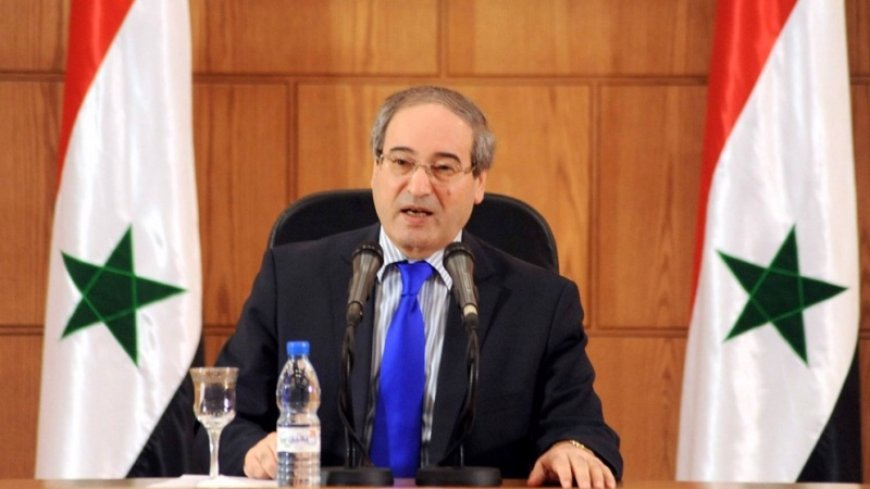Mekdad: The situation in Syria is caused by Western sanctions and help for terrorists.
Mekdad: The situation in Syria is caused by Western sanctions and help for terrorists.

Syria's Foreign Minister, Faisal al-Mekdad, said that the US and its western partners' unilateral sanctions and backing for Takfiri terrorist groups had caused a lot of human suffering in Syria. The top Syrian diplomat said these things Thursday during a meeting in Syria with members from a number of UN agencies and foreign humanitarian groups. During the meeting, he talked about how hard it is for the Syrian people in terms of their health and safety. Mekdad pointed out that there isn't enough money for rebuilding projects in the war-torn country. He also said that the harsh living conditions of Syrians are due to the unilateral sanctions and coercive measures that some Western countries have put on Syria, as well as the help that these countries give to extremist militants. Since 1979, sanctions led by the US have been put on Syria.
After 2011, when foreign-backed militancy and terrorism were widespread in the Arab country, Washington and its Western partners tightened their economic sanctions and other limits on Damascus in a big way. The Caesar Act, which was passed in 2019, tightened the sanctions even more. It goes after all people and businesses who are directly or partially involved in rebuilding Syria. In another part of his speech on Thursday, the Syrian foreign minister criticised Turkey and rebels it supports for constantly cutting off drinking water in the northeastern province of Hasakah. He said this deprived people of their basic needs. Mekdad asked foreign groups that work for human rights to speak out against the practise and hold the people responsible for it answerable. He brought up the problem of Syrian refugees and told them about what the Damascus government was doing to make sure they could go home safely and with respect. Nearly six million Syrians who were listed with the UN left their country because of the war, which started in 2011.
Most of them went to neighbouring countries like Turkey, Lebanon, and Jordan. In recent years, however, Syrian government troops, with help from Russia and Iran, have been able to take back control of almost all areas from terrorist groups. As peace comes back to the Arab country that was torn apart by war, many Syrians are going back home while the government works on rebuilding projects. But Western media, which has contributed to the Syrian war for a long time, says that if the refugees go back to Syria, they could be arrested and abused. Late in June, Bashar al-Assad, the president of Syria, said that the problem of returned refugees should be dealt with in a moral and humane way, not through politics. Assad told Martin Griffiths, the UN's Emergency Relief Coordinator for Humanitarian Affairs and Emergency Relief Coordinator, that the safe return of refugees is the government's top goal in Damascus. He also said that the Syrian government has taken steps to make the process easier.













































